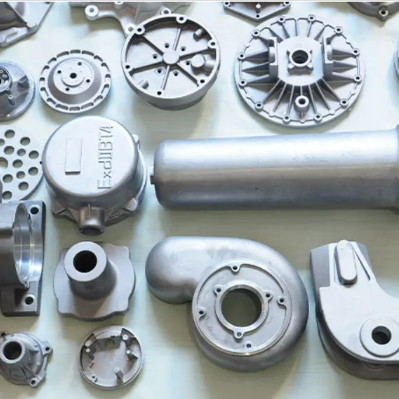Mobile:+86-311-808-126-83
Email:info@ydcastings.com
Exploring the Benefits of a Gunmetal Impeller in Engineering Applications
The Evolution and Advantages of Gunmetal Impellers in Modern Engineering
In the dynamic landscape of engineering and manufacturing, the material choice can significantly influence the performance and longevity of mechanical components. One such material that has gained traction in the production of impellers is gunmetal, an alloy traditionally composed of copper, tin, and zinc. Recognized for its durability and corrosion resistance, gunmetal impellers have become increasingly popular in various applications, from marine engineering to hydraulic systems.
Gunmetal's inherent properties make it an ideal choice for impeller manufacture. The alloy's excellent resistance to corrosion, especially in saline and acidic environments, ensures that gunmetal impellers maintain their structural integrity over time. This durability is essential for components subjected to high-stress conditions, as seen in pumps and turbines. Additionally, the alloy's good casting properties allow for intricate designs, enabling engineers to create impellers that optimize fluid dynamics and enhance performance.
Another significant advantage of gunmetal impellers is their ability to withstand high temperatures. Many hydraulic systems operate in environments that can reach elevated temperatures, and gunmetal's thermal stability provides reliability and efficiency under such conditions. This resilience contributes to the longevity of the impeller itself, reducing the frequency of maintenance and replacement, which is a crucial consideration for manufacturers aiming to minimize operational costs.
gunmetal impeller

In recent years, the emphasis on sustainability in engineering practices has led to a growing interest in materials that provide not only performance but also environmental benefits. Gunmetal's recyclability adds an extra layer of appeal, as it can be repurposed at the end of its life cycle, aligning with modern industry standards for sustainability.
Furthermore, the machining capabilities of gunmetal allow for precise manufacturing processes, enabling engineers to achieve meticulous tolerances necessary for effective operation in high-speed applications. This precision helps to improve efficiency and reduce energy consumption, making gunmetal impellers an economically sound choice for manufacturers.
In conclusion, the use of gunmetal for impellers represents a fusion of traditional material science with modern engineering demands. With its remarkable resistance to corrosion, thermal stability, and ease of machining, gunmetal has solidified its place as a material of choice in the design and manufacture of efficient, durable impellers across various industries. As the engineering sector continues to evolve, gunmetal impellers stand out as a testament to the innovative spirit of modern manufacturing.
-
Why Should You Invest in Superior Pump Castings for Your Equipment?NewsJun.09,2025
-
Unlock Performance Potential with Stainless Impellers and Aluminum End CapsNewsJun.09,2025
-
Revolutionize Your Machinery with Superior Cast Iron and Aluminum ComponentsNewsJun.09,2025
-
Revolutionize Fluid Dynamics with Premium Pump ComponentsNewsJun.09,2025
-
Optimizing Industrial Systems with Essential Valve ComponentsNewsJun.09,2025
-
Elevate Grid Efficiency with High-Precision Power CastingsNewsJun.09,2025











